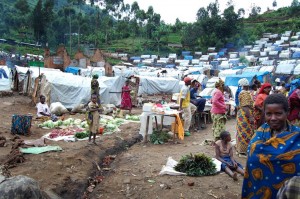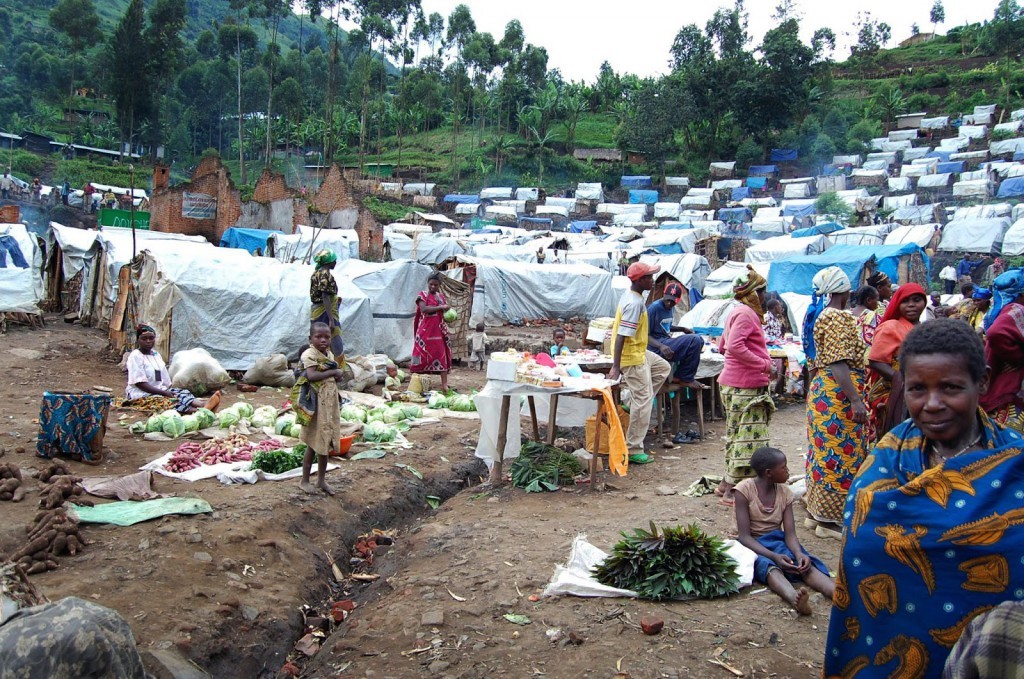
My overwhelming feeling in Yola is the immense generosity of so many anonymous Nigerians helping, providing charity and rebuilding lives. We have had so many bad governments but thank God we have so many great and generous people.
I spent the weekend in Yola, Adamawa State after a long absence from the zone. The occasion was to deliver a lecture organised by the Adamawa Community Advancement Initiative (ACAI), an NGO providing leadership in the search for governance that is committed to sustainable development. ACAI is an advocacy organisation providing guidance and ideas for the promotion of good governance and the sustainable development of the State. There appeared to be wide concern with a history of successive governments that were focused on promoting the interests of family and friends rather than the public interest. A lot of the side discussions were on the Murtala Nyako Administration, which established a parallel government, known as Special Projects and Programmes Unit (SPPU), led by his daughter Rabi Nyako, which handled virtually all projects for ministries and departments of government. There was a lot of hope and concern that the government should not slide into that sort of bad governance.
The theme chosen for the occasion was effective public resource management and the idea was to develop ideas on how to orient the state government into using public resources for the public good rather than for the personal aggrandisement of the people who hold public office. The key challenge has been that in Adamawa State, as in the rest of the country, there has been increasing evidence of the growth of mega corruption. Public officials have developed the destructive habit of stealing billions from the public purse and using it for personal and business projects. The problem has been growing because monumental levels of looting were carried out with impunity. The result is that corruption has become a stumbling block to combating poverty and achieving the goals of national and local development. At the State level, there are no functional mechanisms that could checkmate reckless corruption. The separation of powers remain a theoretical construct because State governors have total control over the State legislatures to whom the give directives. They have also developed mechanisms to control the State judiciary, and with all institutions in their pocket, it is easy to understand the ease with which public resources are mismanaged and used for the interests of family and friends.
The new spirit in the land is that Nigeria belongs to us all and we can no longer leave the political space and bureaucracy to shenanigans and common thieves and crooks. The fight against corruption must be comprehensive and all encompassing. That is the only route to national development.
In the last election, Adamawa State voted APC only (APC sak), with the hope that the determination of Buhari to combat corruption at the national level would be extended to the Sate level where accountability mechanisms have been absent for so many decades. The new spirit in the land is that Nigeria belongs to us all and we can no longer leave the political space and bureaucracy to shenanigans and common thieves and crooks. The fight against corruption must be comprehensive and all encompassing. That is the only route to national development. That route can boost sustainable development in the country if it extends to the State level. ACAI is determined to see that Adamawa State also returns to the principles and practice of good governance.
I used the opportunity of the visit to catch up with the huge crisis of insecurity and the explosion of IDPs, which hit the State following the southward massacre, burn and destroy movement of Boko Haram from August to December 2014. My good friend Asmau Joda took me round Yola to visit with some of the IDPs, who her organisation, Centre for Women and Adolescent Empowerment (CWAE) has been helping to cater for since the major influx in 2014. Asmau herself found 34 IDPs arriving at her house in September 2014 from Michika, where she has relations, seeking refuge. She took them all in and catered for them for over six months and while most of them have now secured accommodation for themselves, her helping hand remained extended to them.
The point on entry for CWAE programming with the IDPs is education and their strategy has been to recruit teachers from among the IDPs themselves and use them to teach the 270 children who had been cut off from schooling.
We visited IDPs at the Daware settlement in Fufore Local Government. The Emirate Council had provided them land, including farmland for 1,700 IDPs who had managed to escape from the Gwoza massacre of August 2014. They assured me that they had been very well received by their host community and the fact that they were given farmland had made it easy for them to settle. The point on entry for CWAE programming with the IDPs is education and their strategy has been to recruit teachers from among the IDPs themselves and use them to teach the 270 children who had been cut off from schooling. Speaking with the teachers, I was shocked to learn that many of them, who are trained teachers with NCE certificates had never been employed in their Gwoza homeland, and this is the first time they are having an opportunity to use their teaching skills. Given the poor education standards in the North-East, its criminal to train teachers and not provide them with employments.
We also visited IDPs in Sangere, not too far from the Modibbo Adama University. Their situation was completely different from those in Daware. They had not been given land and had rented rooms for themselves in the terrible slum area that is Sangere. Most of these 1,800 IDPs are from Gwoza and a few are from Madagali and they have no access to farmland, so they have been surviving doing odd jobs. The key economic activities they are engaged with is felling and selling fuel wood, which is bad for the environment, and breaking and selling stones, which is bad for their eyes. Their school project is also facing challenges, as there is opposition from the nearest public school to allow the IDP children access to their classrooms. UNICEF has provided one tent but it is grossly insufficient for the number of children there. The CWAE programme is now securing sewing machines, grinding mills and oil pressing machines to economically empower them.
Working with an American NGO, they provided paper and coloured crayons to children and asked them to draw whatever they wanted. The dominant images were warplanes, attack helicopters and machine guns. Some of them have seen their parents and relations killed. We cannot continue to traumatise our children by allowing visioning atrocities to be part of their upbringing.
Asmau Joda showed me one of her most touching projects – Healing Through Art. Working with an American NGO, they provided paper and coloured crayons to children and asked them to draw whatever they wanted. The dominant images were warplanes, attack helicopters and machine guns. Some of them have seen their parents and relations killed. We cannot continue to traumatise our children by allowing visioning atrocities to be part of their upbringing. I asked Asmau Joda to give me the reports of the great work she is doing, she had none. She spends her time and resources helping, and branding has not even occurred to her. My overwhelming feeling in Yola is the immense generosity of so many anonymous Nigerians helping, providing charity and rebuilding lives. We have had so many bad governments but thank God we have so many great and generous people.
A development consultant and expert, Jibrin Ibrahim is a Fellow of the Centre for Democracy and Development and Chair of the Editorial Board of Premium Times.

